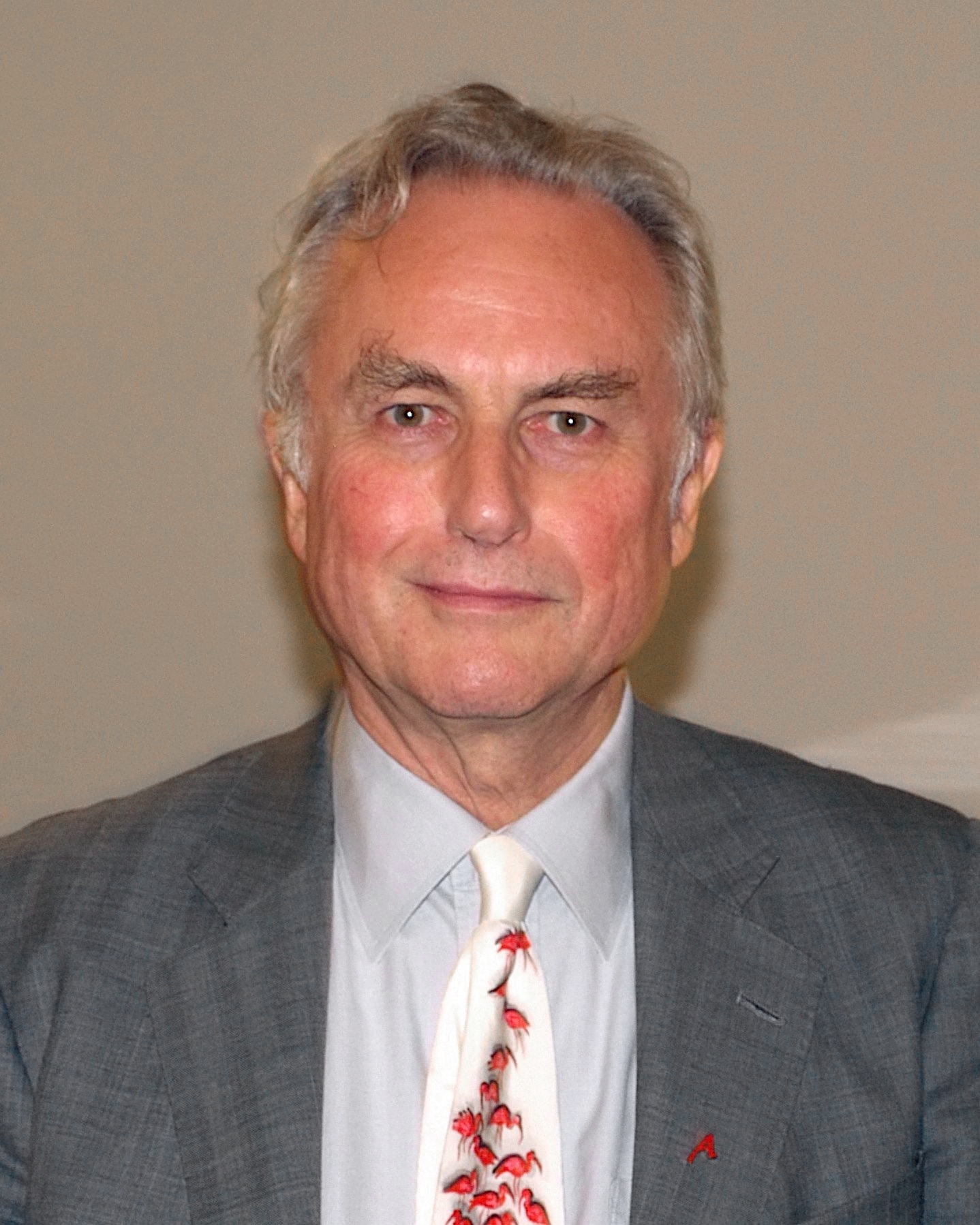Cytaty z książek, Bóg urojony (2006)
Richard Dawkins słynne cytaty
Źródło: Jacek Hołówka, „Gazeta Wyborcza”, cyt. za: racjonalista.pl http://www.racjonalista.pl/ks.php/k,1684
Cytaty z książek, Bóg urojony (2006)
Źródło: s. 412.
oświadczył.
Cytaty z książek, Bóg urojony (2006)
Cytaty z książek, Bóg urojony (2006)
Cytaty z książek, Bóg urojony (2006)
Richard Dawkins Cytaty o religii
za ten „umysłowy wirus” autor uważa religię.
Cytaty z książek, Bóg urojony (2006)
Cytaty z książek, Bóg urojony (2006)
Richard Dawkins cytaty
Cytaty z książek, Bóg urojony (2006)
„Ale”?! Dlaczego nie „i”?
Cytaty z książek, Bóg urojony (2006)
Cytaty z artykułów
Źródło: „The Atheist”, Gordon Snack, Salon.com, 28 kwietnia 2005
Cytaty z książek, Samolubny gen (1976)<span id=Samolubny gen> </span>
Cytaty z książek
Źródło: Rozplatanie tęczy (ang. Unweaving the Rainbow, 1988)
Cytaty z książek
Źródło: Fenotyp rozszerzony (ang. The Extended Phenotype, 1982
Autorka: Agata Bielik-Robson, rozmowa Agaty Bielik-Robson i Tadeusza Bartosia, Ateizm, gnoza i magiel polski, krytykapolityczna.pl, 16 marca 2013 http://www.krytykapolityczna.pl/artykuly/czytaj-dalej/20130316/ateizm-gnoza-i-magiel-polski
Cytaty z książek, Bóg urojony (2006)
Cytaty z książek, Bóg urojony (2006)
Cytaty z książek, Samolubny gen (1976)<span id=Samolubny gen> </span>
Cytaty z artykułów
Źródło: Karol Jałochowski, W cieniu zakwitających teorii, „Polityka” wydanie specjalne, 6/2010.
Richard Dawkins: Cytaty po angielsku
Źródło: The Ancestor's Tale: A Pilgrimage to the Dawn of Evolution
"Time to Stand Up"
A Devil's Chaplain (2003)
Źródło: A Devil's Chaplain: Reflections on Hope, Lies, Science, and Love
Duke University, 01/03/2012 http://www.youtube.com/watch?v=rYcOoqxuroI&t=54m51s
The Magic Of Reality (2012)
Źródło: The Magic of Reality: How We Know What's Really True
Kontekst: Don’t ever be lazy enough, defeatist enough, cowardly enough to say “I don't understand it so it must be a miracle - it must be supernatural - God did it”. Say instead, that it’s a puzzle, it’s strange, it’s a challenge that we should rise to. Whether we rise to the challenge by questioning the truth of the observation, or by expanding our science in new and exciting directions - the proper and brave response to any such challenge is to tackle it head-on. And until we've found a proper answer to the mystery, it's perfectly ok simply to say “this is something we don't yet understand - but we're working on it”. It's the only honest thing to do. Miracles, magic and myths, they can be fun. Everybody likes a good story. Myths are fun, as long as you don't confuse them with the truth. The real truth has a magic of its own. The truth is more magical, in the best and most exciting sense of the word, than any myth or made-up mystery or miracle. Science has its own magic - the magic of reality.
Źródło: The Blind Watchmaker: Why the Evidence of Evolution Reveals a Universe Without Design
“Let us try to teach generosity and altruism, because we are all born selfish.”
Źródło: The Selfish Gene
“We, alone on earth, can rebel against the tyranny of the selfish replicators.”
Źródło: The Selfish Gene
Part 2, 00:13:55
Part 2: "The Virus of Faith", quoted at "The Proper Study of Mankind" blog http://psom.blogspot.com/2006/01/root-of-all-evil-part-2-virus-of-faith.html on January 25, 2006
The Root of All Evil? (January 2006)
In an interview to The Times — Richard Dawkins: Atheist academic calls for religion 'to be offended at every opportunity' http://www.independent.co.uk/news/people/richard-dawkins-atheist-academic-calls-for-religion-to-be-offended-at-every-opportunity-a7043226.html (23 May 2016)
“There has been progress in design, but not progress in accomplishment.”
Źródło: The Blind Watchmaker (1986), Chapter 7 “Constructive Evolution” (p. 186)
“Evolution normally does not come to a halt, but constantly ‘tracks’ the changing environment.”
Źródło: The Blind Watchmaker (1986), Chapter 7 “Constructive Evolution” (p. 179)
“Contrary to earlier prejudices, there is nothing inherently progressive about evolution.”
Źródło: The Blind Watchmaker (1986), Chapter 7 “Constructive Evolution” (p. 178)
“What expertise can theologians bring to deep cosmological questions that scientists cannot?”
Źródło: The God Delusion (2006), p. 79
